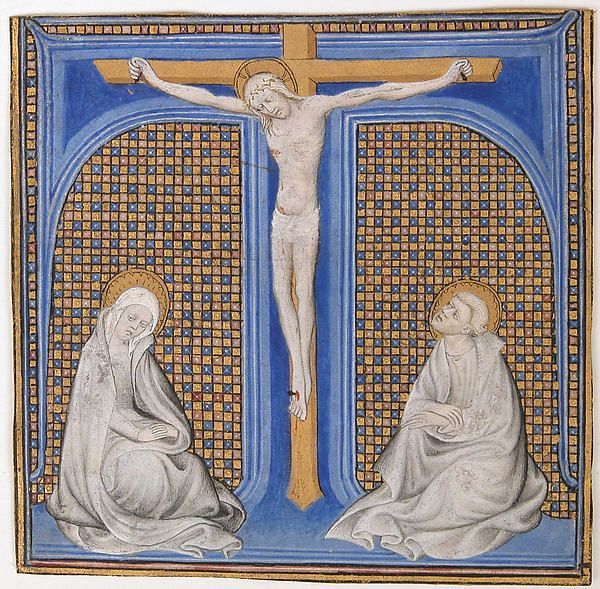Rules to make a good election
Introduction to making of a choice of a way of life
(SE 169): “In every good choice, as far as it as it depends on us, our intention must be simple. I must consider only the end for which I am created, that is, for the praise of God our Lord and for the salvation of my soul. Hence, whatever I choose must help me to this end for which I am created.
I must not subject and fit the end to the means, but the means to the end. Many first choose marriage, which is the means, and secondarily the service of God our Lord in marriage, though the service of God is the end. So also others first choose to have benefits, and afterwards to serve God in them. Such persons do not go directly to God, but want God to conform wholly to their inordinate attachments. Consequently, they make of the end a means, and of the means an end. As a result, what they ought to seek first, they seek last.
Therefore, my first aim should be to seek to serve God, which is the end, and only after that, if it is more profitable, to have a benefice or marry, for these are means to the end. Nothing must move me to use such means, or to deprive myself of them, save only the service and praise of God our Lord and the salvation of my soul.
Prayer for generosity.
O my God, teach me to be generous,
to serve You as You deserve to be served,
to give without taking account of the cost,
to fight without fear of being wounded,
to work without seeking rest,
and to give of myself without any reward
but the knowledge that I am doing Your Holy Will. Amen.
Matters about which a choice should be made
(SE 170): “The purpose of this consideration is to afford information on the matters about which a choice should be made. It contains four points and a note:
First point: It is necessary that all matters of which we wish to make a choice be either indifferent or good in themselves, and such that they are lawful within our Holy Mother, the hierarchical Church, and not bad or opposed to her.
Second point (SE 171): “There are things that fall under an unchangeable choice, such as priesthood, marriage, etc. There are others with regard to which our choice may be changed, for example, to accept or relinquish a benefice, to receive or renounce temporal goods.”
Third point (SE 172): “With regard to an unchangeable choice, once it has been made, for instance, by marriage or the priesthood, etc., since it cannot be undone, no further choice is possible. Only this is to be noted. If the choice has not been made as it should have been, and with due order, that is, if it was not made without inordinate attachments, one should be sorry for this, and take care to live well in the life he has chosen.
Since such a choice was inordinate and awry, it does not seem to be a vocation from God, as many erroneously believe. They make a divine call out of a perverse and wicked choice. For every vocation that comes from God is always pure and undefiled, uninfluenced by the flesh or any inordinate attachment.”
Fourth point (SE 173): “In matters that may be changed, if one has made a choice properly and with due order, without any yielding to the flesh or the world, there seems to be no reason why he should make it over. But let him perfect himself as much as possible in the one he has made.”
Note (SE 174): “It is to be observe that if a choice in matters that are subject to change has not been made sincerely and with due order, then, if one desires to bring froth fruit that is worthwhile and most pleasing in the sight of God our Lord, it will be profitable to make a choice in the proper way.”
Three times for making a sound and good election
First time (SE 175): “When God our Lord moves and attracts the will in such a way that a devout person without hesitation, or the possibility of hesitation, follows what has been manifested to it. This is what St. Paul and St. Matthew did when they followed Christ our Lord.
Second time (SE 176): The second time: is present when sufficient clarity and knowledge are received from the experience in the discernment of various spirits.
The third time is one of tranquillity, I consider first the end for which I was born, namely, to praise God our Lord and save my soul; then, desiring this, as the means I elect a life or state of life within the bounds of the Church, in order to be helped in the service of my Lord and the salvation of my soul.
A time of tranquillity means one when the soul is not being moved one way or the other by various spirits and uses its natural faculties in freedom and peace.
If the election is not made in the first or second time, two methods are given below for making it in this third time:
* The first method of making a sound and good election. It contains six points:
- The first is to put before myself the matter about which I wish to make an election, for example, an office or a benefit to be taken or left or any other thing which falls under the heading of a changeable election.
- It is necessary to keep as my objective the end for which I am created, to praise God our Lord and save my soul. Furthermore, I ought to find myself indifferent, that is, without any disordered affection, to such an extent that I am not more inclined or emotionally disposed toward taking the matter proposed rather than letting go of it, nor more toward letting it go rather than taking it.
Rather, I should find myself in the middle, like the pointer of a balance, in order to be ready to follow that which I perceive to be more to the glory and praise of God our Lord and the salvation of my soul.
- I should beg God our Lord to be pleased to move my will and to put into my mind what I ought to do in regard to the matter proposed, so that it will be more to his praise and glory. I should beg to accomplish this by reasoning well and faithfully with my intellect, and by choosing in conformity with his most holy will and good pleasure.
- I should consider and reason out how many advantages or benefits accrue to myself from having the office or benefit proposed, all of them solely for the praise of God our Lord and the salvation of my soul; and on the dangers in having it. Then, acting in the same manner in the second part, I should consider the advantages and benefits in not having it, and contrarily the disadvantages and dangers in not having it.
- After I have considered and thought out every aspect of the proposed matter, I should see to which side my reason more inclines. It is in this way that I ought to come to a decision about the matter proposed, namely, in accordance with the preponderating motion of reason, and not from some motion arising from sensitive human nature.
- When that election or decision has been made, the person who has made it ought, with great diligence, go to pray before God our Lord. He should offer to him that election and beg his Divine Majesty to receive and confirm it, provided it is conducive to his greater service and praise.
** The second method of making a sound and good election. It contains four rules and a note (SE n 184-188):
- That love which moves me and brings me to choose the matter in question should descend from above, from the love of God; in such a way that the person making the election should perceive beforehand that the love, whether greater or less, which he or she has for the matter being chosen, is solely for the sake of our Creator and Lord.
- I will imagine a person whom I have never seen or known. Desiring all perfection for him or her, I will consider what I would say in order to bring such a one to act and elect for the greater glory of God our Lord and the greater perfection of his or her soul. Then, doing the same for myself, I will keep the rule which I set up for another.
- I will consider as if I were at the point of death, what procedure and norm I would wish to choose about what I am now thinking over. Then, guiding myself by that norm, I should make my decision on the whole matter.
- Imagining and considering in what condition I will find myself on judgment day, I will think how at that time I would wish I had decided with regards to the present election. And the rule which I wish I would have followed is that which I will apply now, in order that then I may be in complete contentment and joy.
Note: After I have observed the rules presented above for my salvation and eternal contentment, I shall make my election and offer it to God our Lord, in the manner described in point 6 of the first method of making an election.
Rules for the Reform of Life.
If you have already solved the problem of the selection of state of life, you still have the one about the reform of life. It is your duty to tend to perfection, within the way of life that you are already leading. Define it more clearly. Orient it decisively to Christ, through prayer, study, apostolate, family and professional life.
A plan of life. It is better to write a balanced plan of life, not too generous that later you will not be able to fulfil it, nor so diffusive and ample, that you do not make any concrete improvement. Organize it in parts, for example:
-Prayer: how many and which prayer will I do each day, each week, month…
-Study of the New Catechism: every day, weekend…
-Apostolate: where, with whom, how much time…
-Work: duties of the state, supernatural vision of the profession, give good example…
-Life of relation: in family, time that I dedicate to them, friends, girl\boy friend, according to God…
-Rest, entertainment, sports: not neglecting them, in what measure…
How are you going to distribute your daily schedule?
-Get up at…
-Meditation, from… to…
-Study, work…
-in family, so much time to spend…
-the rosary, at such time, on such trip…
-some spiritual reading, every day, or weekends…
-the Holy Mass, or Communion, if I could every day…
Every week: my Confession… Apostolate…, rest…, readings…
Every month: the monthly retreat of perseverance, the first Friday…
Every year: return to the heaven of the Spiritual Exercises.
As of now propose to yourself:
-I will correct myself of such defect…
-and I will encourage myself to practice of such virtue,
-employing such means for both things…
Purposes: You will go out from the Exercises:
* oriented; with light to know,
* invigorated; with strength to be able,
* decided; with energy to will.
You will develop habits, permanent dispositions of spirit based on precise decisions. They are necessary for you and strategically selected: these will be the purposes of your Exercises. These should be few, concrete, realizable and written, with your signature and stamp in your notebook and in your conscience.

Take, Lord,
and receive all my liberty, my memory, my understanding, and my entire will, all that I have and possess. Thou hast given all to me. To Thee, O Lord, I return it. All is Thine, dispose of it wholly according to Thy will. Give me Thy love and Thy grace, for this is sufficient for me.
(Spiritual Exercises #234. Louis Puhl SJ, Translation.)



